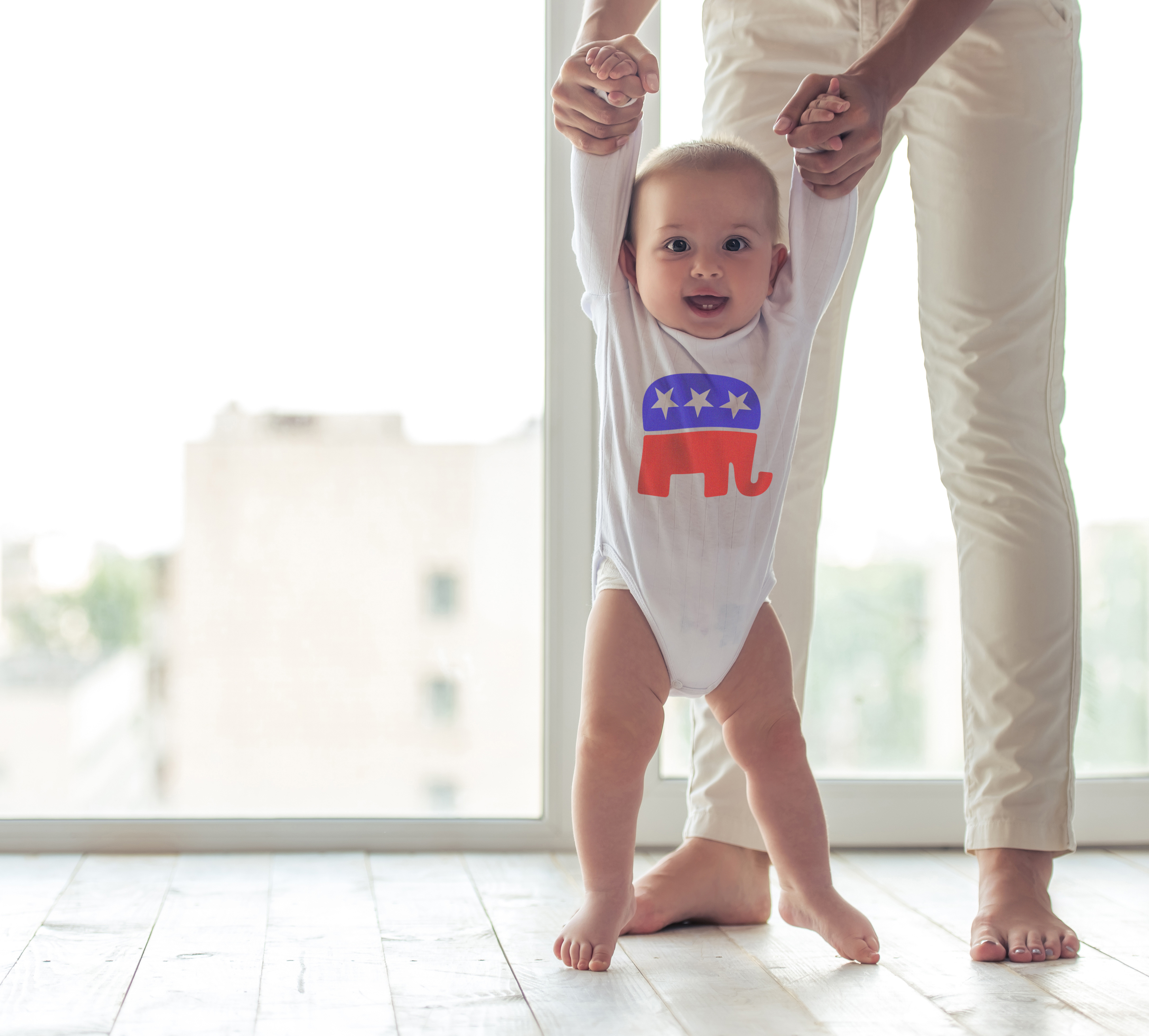How the GOP can win back women — without abandoning conservative principles
Start with a paid family leave plan


A free daily email with the biggest news stories of the day – and the best features from TheWeek.com
You are now subscribed
Your newsletter sign-up was successful
The Republican Party may have a big problem this fall. Compared to the Democrats, the GOP has always had fewer women voters. But recent polls suggest that gender gap is widening heading into the 2018 midterm elections.
"If women were the only ones who voted, races that are closely contested now would turn into Democratic blowouts, today's safe Republican seats would turn into toss-ups, and Democrats would win the House popular vote nearly every time," Nathaniel Rakich and Dhrumil Mehta write at FiveThirtyEight.
This isn't particularly surprising. The supposed "family party" has done a good job lately at putting special interest groups and big business before working-class voters, single mothers, and needy families. The House's farm bill, passed on a Republican-only vote in June, put extra work requirements on SNAP beneficiaries while making it even easier for the nation's largest agribusiness corporations to qualify for massive subsidies and crop insurance paid for by the taxpayer.
The Week
Escape your echo chamber. Get the facts behind the news, plus analysis from multiple perspectives.

Sign up for The Week's Free Newsletters
From our morning news briefing to a weekly Good News Newsletter, get the best of The Week delivered directly to your inbox.
From our morning news briefing to a weekly Good News Newsletter, get the best of The Week delivered directly to your inbox.
But the GOP's hypocrisy has extended beyond the fiscal realm and into social and moral territory, as politicians like former Rep. Tim Murphy (R-Pa.), former Alabama Supreme Court justice Roy Moore, and President Trump have risen to the forefront. Their misogyny, harassment, and hypocrisy have not just tainted their own records, they've made the Republican Party increasingly abhorrent to women voters, as well.
This is why Sen. Marco Rubio's (R-Fla.) paid family leave bill, introduced to Congress this month, is important. It marks a hopeful shift for the GOP, from being — as Pascal-Emmanuel Gobry put it last year — a "party of the rich" to being "the party of working-class families." It suggests to women that perhaps the GOP cares about them and their needs, after all.
A paid family leave plan would not just demonstrate that the GOP cares about families — it would demonstrate the party's larger fidelity to the pro-life movement, a movement many female voters care about. In a world where many women choose abortion because they believe they cannot afford to raise a child, family leave is one important way we can ease that financial burden. What's more, a majority of both Democrats and Republicans who make less than $30,000 a year (and are therefore most likely to need a paid leave plan to help care for family members) identify as "pro-life."
Rubio's plan isn't perfect. Accessing Social Security benefits earlier in life may hurt lower-income women and men who may need those benefits later in life even more than middle-class voters. Many question the viability of the plan because Social Security is already in trouble, with a 2017 Social Security Trustees report suggesting that the fund could be completely depleted by 2034. And still others have argued that private businesses might get rid of their own (perhaps more generous) paid leave plans if they believe the government will cover the cost for them.
A free daily email with the biggest news stories of the day – and the best features from TheWeek.com
But Rubio and his reform conservative counterparts recognize that the government will offer benefits to its citizens, of one sort or another — the key is in "structuring those benefits in a way that allows individuals and communities to make their own decisions," as Robert Verbruggen writes at The American Conservative. This is why plans for a child tax credit or child allowance, along with a paid family leave plan, have been priorities for congressmen like Rubio and Sen. Mike Lee (R-Utah). They recognize that a party with a pro-family and pro-life agenda must back up their rhetoric with real policies — policies that recognize that our country's birth rates, marriage rates, and two-parent households are all declining. Conservatism, after all, isn't just about not spending money. It's about conserving things — things that matter for holistic flourishing and the common good. Surely the happiness and well-being of the nation's mothers and children should be included in that paradigm.
As part of the GOP's tax bill last year, Sen. Deb Fischer (R-Neb.) introduced a tax cut for private businesses that offer paid family leave to their employees. Fischer hopes the data collected from the two-year pilot program will demonstrate the efficacy of "the carrot approach" in bolstering paid leave.
But tax credits to private companies may not be enough. It's important to consider the number of Americans who work part-time or minimum wage jobs, and might not be eligible for paid leave at all, but who arguably need it the most.
Rubio is trying to think outside the box by offering up a paid family leave plan that marries fiscal conservatism to a pro-family ethos. If his plan is not adopted by Republicans in coming days, it's important that they bring some other, better plan to the table. Ignoring this topic is no longer an option. If the GOP really believes in being a family party — a party of and for women, as well as men — it needs to start acting like it.
Gracy Olmstead is a writer and journalist located outside Washington, D.C. She's written for The American Conservative, National Review, The Federalist, and The Washington Times, among others.
